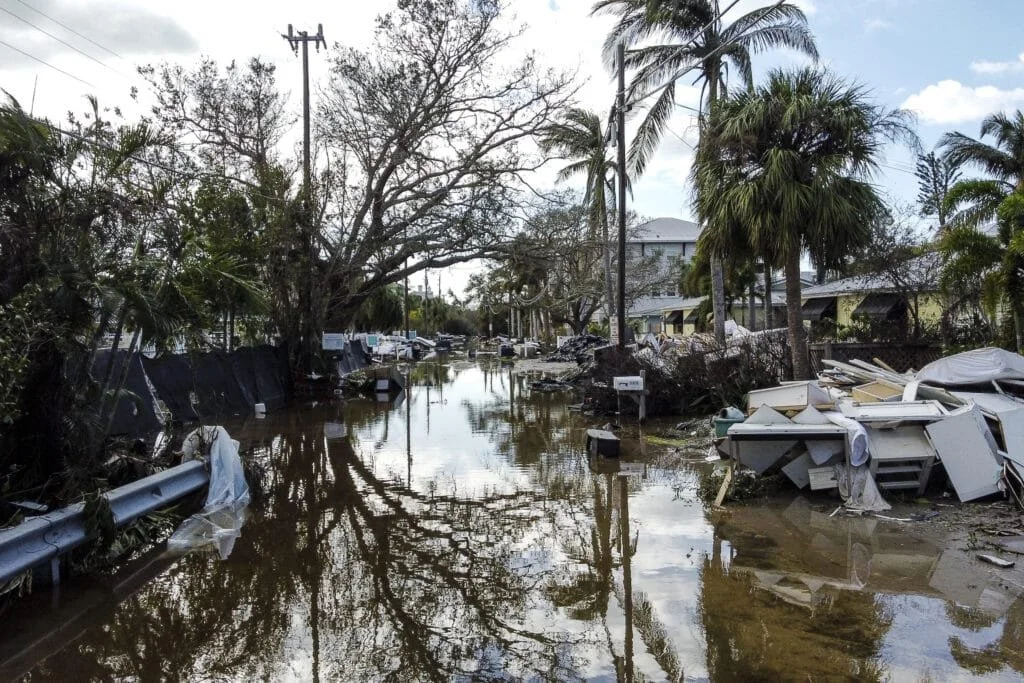Emotional Recovery After Hurricanes Helene and Milton: My Journey and Strategies for Healing
The aftermath of Hurricanes Helene and Milton was a difficult time, both physically and emotionally. Like many others, I went a week without power, facing the discomforts that come with it. But even more challenging was witnessing friends lose their homes, cars, and peace. The financial insecurity that came from being unable to work during that week weighed heavily on me, and one afternoon, I found myself crying in my office, overwhelmed by the demands of life in the middle of this recovery.
What helped me navigate those emotions was the validation I received from a friend who truly listened. Prayer and taking time to focus on what I could still be grateful for, despite the hardships, also brought me a sense of relief. However, healing from a crisis like this requires ongoing emotional recovery, and I want to share a few additional strategies that can help.
Connect with Your Support Network
During stressful times, it's easy to retreat inward and try to manage everything on your own. But reaching out to family, friends, or even community support groups can make all the difference. Having someone listen to your experiences or simply sharing a cup of coffee with a friend can provide emotional relief and a sense of togetherness.
Allow Yourself to Grieve
It’s important to recognize the losses you’ve experienced, whether it's something material, like a home or car, or the emotional toll of seeing others suffer. Give yourself permission to grieve. Ignoring those feelings only prolongs emotional recovery. Taking time to reflect on these losses and talking about them openly can help you process and release some of the emotional weight.
Practice Self-Care
During a crisis, basic self-care can fall by the wayside. Re-establishing routines like getting enough sleep, eating nutritious meals, and incorporating some form of physical movement can help restore a sense of normalcy. Even something small like a daily walk or taking a few moments to breathe deeply can help reduce feelings of overwhelm. I personally made sure skin care routine which made me feel a bit like my normal self.
Set Manageable Goals
In the wake of a disaster, it can feel like there are a thousand things that need your attention. Try breaking those down into smaller, manageable tasks. Setting small goals, like cleaning up one room or reaching out to a friend, can help you regain a sense of control and accomplishment in the midst of chaos.
Engage in Mindfulness or Grounding Techniques
Mindfulness can be a powerful tool in calming your mind and reducing anxiety. Taking a few moments each day to sit quietly, focus on your breathing, or practice gratitude can help you feel more grounded. Grounding techniques, such as focusing on your five senses or simply noticing your environment, can bring you back to the present moment when emotions feel overwhelming.
Limit Media Consumption
While staying informed is important, constant exposure to news and social media updates about disasters can increase anxiety. Try to limit your media consumption to specific times of day and focus on positive or recovery-focused news when possible.
Seek Professional Help if Needed
If the emotional weight becomes too much, don’t hesitate to seek professional help. Therapists and counselors can provide guidance and support in navigating post-disaster stress and trauma, helping you process emotions and develop effective coping strategies.
Get Involved in Community Recovery Efforts
Helping others can be a way to heal yourself. Getting involved in local recovery efforts, whether through donations, volunteering, or offering emotional support to neighbors, can help foster a sense of purpose and connection. Knowing you're part of a collective recovery can provide emotional strength during hard times.
Moving Forward
Recovery from disasters like Hurricanes Helene and Milton is not just about rebuilding structures but about healing emotionally. Connecting with loved ones, allowing yourself to grieve, practicing self-care, and focusing on gratitude are all vital in this process. As I learned from my experience, finding validation and strength in my faith and my community helped me move forward. Emotional recovery takes time, but with the right strategies, healing is possible.
If you are struggling with emotional trauma of the aftermath of the hurricanes, please reach out to us at Restoration Counseling of Florida. Our team is here to walk you through the hardships you may have experienced and desire to help you find hope and healing. Reach out to us today!

